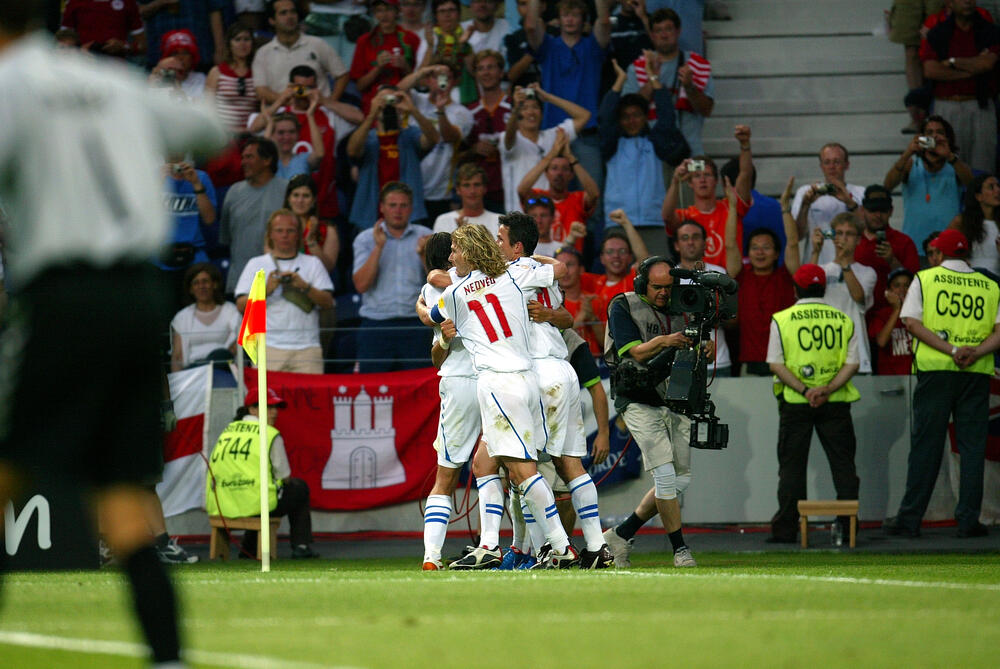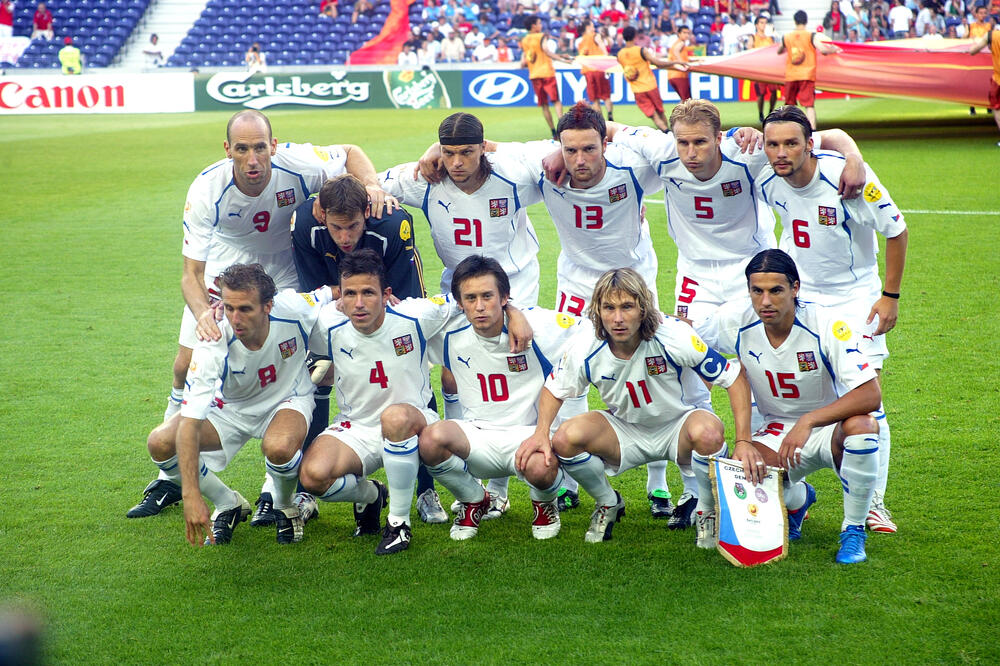In the history of football, Czechoslovakia has recorded numerous successes - two World Cup finals (1934 and 1962), gold at the European Championship in 1976 and the Olympic Games in 1980. These are notable results that place the country at the top of world football. We should not forget Jozef Masopust, who won the Golden Ball in 1962.
After the breakup of Czechoslovakia, the Czech Republic recorded better results, mainly at European championships. In 1996, the Czechs reached the final in England, where they lost to Germany after a turnaround and a golden goal by Oliver Biroff, while four years later they did not make it past the group stage at the Euros in Belgium and the Netherlands. The 2004 Continental Championship was an opportunity to correct the bad impression from the previous championship, and to heal the wounds caused by missing the World Cup in South Korea and Japan in 2002.
The Czech Republic played phenomenally in the 2004 European Championship qualifiers. In a group with the Netherlands, Austria, Moldova and Belarus, they recorded seven wins and a draw and arrived in Portugal full of confidence. They played great football, and experts believed that the "dumplings" in that championship could upset the favorites and make it to the very end of the tournament. In those estimates, they did not count on Greece. Although, let's be realistic, no one counted on the Greeks that summer.
Coach Karel Brickner relied mainly on the 4-4-2 formation, with some adjustments. One of the key roles was played by Tomaš Galašek, who covered the position of the rear midfielder, but could also play in defense if needed and was one of the key people in Brickner's team.
In front of Galašek in the midfield, the Czech Republic had three masters, who made up perhaps the best midfield in the history of that country - Karel Poborski, Tomaš Rosicki and Pavel Nedved. Poborski was one of the best Czech players at Euro 1996, while Rosicki – at that time a Borussia Dortmund footballer – arrived in Portugal as one of the most talented European footballers. And Nedved, winner of the Ballon d'Or in 2003, was one of the best footballers in the world and the European Championship in 2004 was his last chance to achieve something more with the national team.
Vladimir Šmiter got the chance in the middle of the field, while Milan Baroš and Jan Koler were unchallenged in the attack. In goal was Petr Čech, who moved to Chelsea that summer, and in front of him Tomas Ujfaluši, Zdenjek Grigera, Marek Jankulovski, Rene Bolf or Martin Jiranek, depending on the tactical ideas.
At the tournament, the Czechs played in a group with the Netherlands, Germany and Latvia, which was their rival in the first round and took a sensational lead in stoppage time in the first half when Maris Verpakovskis hit the net. In the continuation, the Czech Republic reversed, and the scorers were Milan Baroš and reserve Marek Hajnc.
In the second round, the Czechs played against the Netherlands and after 20 minutes they were two goals behind - Wilfred Bouma and Rud van Nisterloj gave the "tulips" the lead, but the Czech Republic managed to turn it around again. Koler, Šmiter and Baroš scored, so after a sensational turnaround, they secured a place in the quarterfinals.
And the match of the third round with the Germans was identical to the previous two - the Czech Republic lost (Balak's goal), but then managed to turn it around after Baroš and Heinz shook the "panzer" net.
The opponent in the quarter-finals was Denmark. It was the best match that the Czechs played at the championship. Grigera missed the game due to an injury, but the defense worked brilliantly, while Koler and double scorer Baroš excelled in the attack, who scored five goals in the championship and was the top scorer. Greece stood on the way to the final...

The Czechs had a great opportunity. Greece sensationally reached the semi-finals, but was also an outsider in that match. As the game progressed, it was clear that the Czechs would have a hard time winning, and the situation was made more difficult by the injury of Pavel Nedved, who left the game in the 40th minute. He was replaced by Šmiter and, interestingly, that was the only change in the match in the Czech camp.
The Czechs missed, Kohler and Baros were not precise in the second half and it went into extra time, in which Greece through Trajanos Delas managed to score a goal and win the final, in which they defeated Portugal and sensationally won the European title.
On the other hand, the injury to Nedved cost the Czechs dearly, as well as the fact that Brickner made only one change. He didn't want to change his style of play much and it cost him in the end.
The Czech Republic was never close to the final again at the European Championships. And it is still waiting for a talented generation, like this one at EP 2004.
Bonus video:





